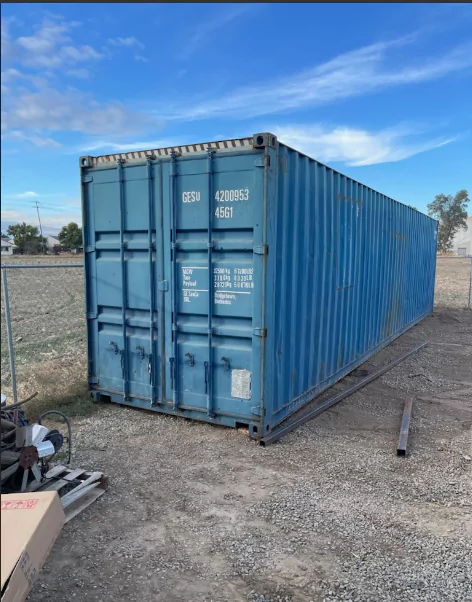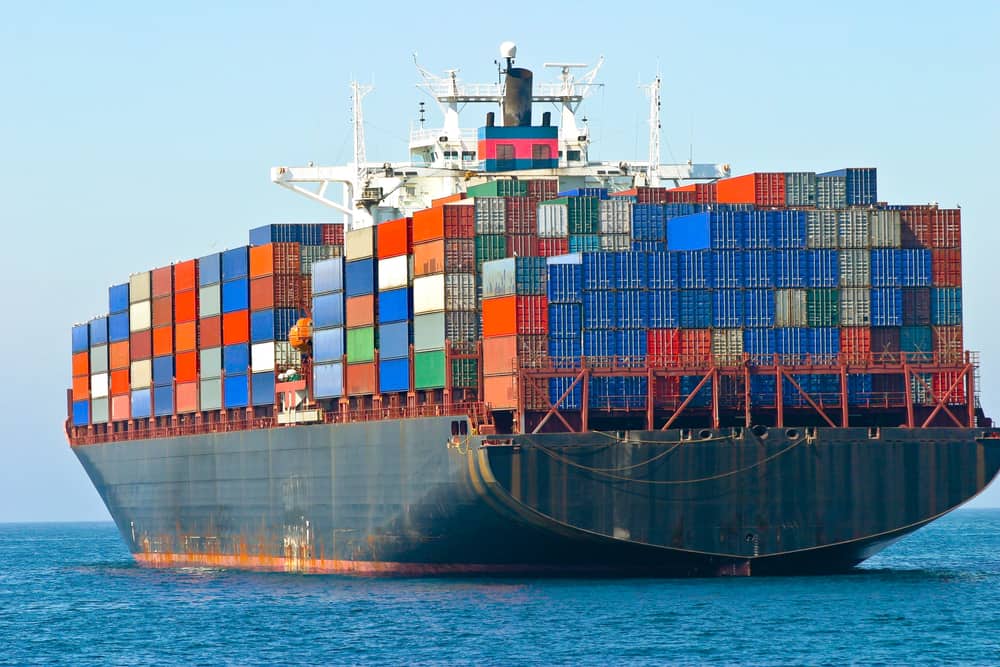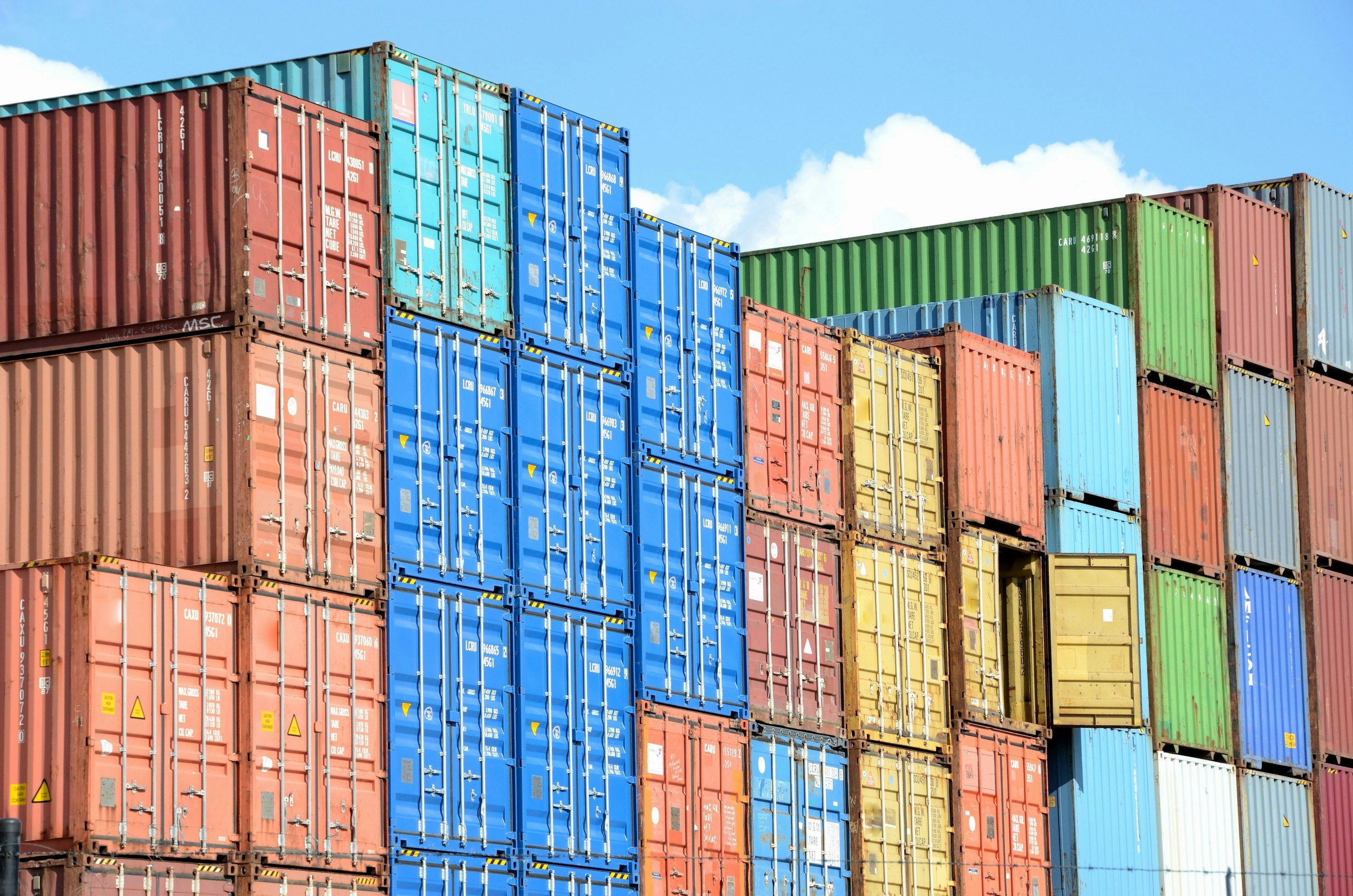The step-by-step guide to shipping container storage for homeowners
Wiki Article
Every little thing You Need to Find Out About Shipping Containers and Their Practical Applications
Shipping containers have evolved from simple tools for transportation to versatile structures with many sensible applications. Their robust style and conventional sizing make them suitable for a range of uses beyond delivery. From cutting-edge housing options to sustainable farming, their versatility is notable. The opportunities do not finish there. Exploring their various features exposes unexpected insights into modern-day difficulties and creative services. What other roles could these containers play in today's globe?The Design and Framework of Shipping Containers

Inside, containers are designed to make best use of space, frequently including wood or steel floor covering that can support considerable weight. Ventilation systems may be integrated to stop wetness build-up, which is essential for delicate cargo. In addition, strengthened corners enable very easy handling by cranes and forklifts, assisting in smooth loading and dumping. This thoughtful style and framework contribute to the containers' versatility throughout numerous delivery and storage applications.
Benefits of Using Shipping Containers
While lots of transport methods have their advantages, using delivery containers sticks out because of their unrivaled adaptability and efficiency. Shipping containers use a standard size, making them easy to move and pile across various modes of transportation, including trains, ships, and vehicles. This standardization minimizes packing and dumping times, thus enhancing overall performance.In addition, shipping containers are created from long lasting materials, providing robust security for goods throughout transportation. They are secure and weather-resistant, decreasing the threat of damage from environmental factors or theft. Furthermore, the modular design of delivery containers permits for simple modification, making it possible for organizations to adjust them for various objectives, such as storage or mobile workplaces.
Their mobility and cost-effectiveness make shipping containers an appealing option for businesses looking to streamline logistics and supply chain operations. These advantages add to the expanding appeal of delivery containers in different industries.
Creative Housing Solutions With Shipping Containers
Cutting-edge real estate solutions have actually arised as an interesting application of shipping containers, leveraging their integral toughness for property use. These functional structures offer a lasting alternative to standard building materials, typically at a fraction of the cost. Designers and developers have transformed containers into stylish, useful homes, dealing with varied lifestyles and choices.

Additionally, shipping containers are ecologically pleasant, promoting recycling and lowering waste. Many jobs concentrate on power effectiveness, incorporating photovoltaic panels and environment-friendly roofings. As urbanization boosts, these innovative housing remedies provide a functional feedback to real estate lacks while cultivating a special building visual.
Shipping Containers in Retail and Pop-Up Shops
A growing number of stores are transforming to shipping containers as a dynamic solution for pop-up shops and retail areas. These flexible structures provide an economical alternative to conventional shops, permitting companies to create special, appealing environments that bring in consumers. Their modular style enables very easy transportation and setup, making them ideal for short-lived or seasonal retail locations.Merchants can customize shipping containers to reflect their brand name identification, transforming them into visually appealing stores that stand apart in jampacked marketplaces. The small nature of containers likewise motivates reliable use of space, allowing for imaginative designs that optimize client flow and interaction. In addition, delivering containers can be located in unconventional areas, such as vacant great deals or urban parks, enhancing availability and foot web traffic.
As the retail landscape advances, shipping containers supply a flexible and innovative service that fulfills the needs of contemporary customers while improving the buying experience.
Lasting Farming Practices Utilizing Shipping Containers
Sustainable farming techniques increasingly include shipping containers as innovative services for farming - Shipping Containers. These container farms utilize hydroponics to take full advantage of space and source performance, supplying a cost-effective method to food production. By transforming shipping containers right into farming centers, farmers can resolve food security and environmental issues at the same timeContainer Farming Conveniences
While traditional agriculture encounters obstacles such as land shortage and climate adjustment, container farming offers a feasible alternative that makes the most of room and sources. This cutting-edge technique permits for year-round crop production in controlled atmospheres, lowering dependence on climate condition. Container ranches utilize much less water than standard farming, advertising sustainability and preservation. They can be established in urban areas, bringing fresh produce closer to customers and minimizing transport emissions. In addition, the modular nature of shipping containers makes it possible for scalability, allowing farmers to readjust procedures based upon need. Container farming also decreases chemical use by creating an enclosed community, ultimately boosting food safety. As city populations grow, container farming becomes a sensible remedy to meet the boosting demand for local, sustainable food resources.Hydroponics in Containers
Hydroponics, which permits plants to grow without soil by making use of nutrient-rich water, thrives within the confines of shipping containers, making it an optimal technique for urban agriculture. These containers produce a regulated setting that optimizes humidity, temperature level, and light, enabling year-round cultivation. With minimal room in metropolitan locations, shipping containers use a scalable option for expanding fresh produce. Hydroponic systems within containers can consist of various techniques, such as nutrient movie method (NFT) and deep water society (DWC), which take full advantage of return while reducing water usage. This ingenious method not just improves food safety however likewise reduces the carbon footprint connected with conventional farming approaches. Consequently, hydroponics in containers stands for a forward-thinking service for lasting urban food manufacturing.Affordable Farming Solutions
As food manufacturing deals with raising challenges because of environment change and urbanization, delivering containers become a cost-efficient option for agriculture. These versatile frameworks can be repurposed for numerous lasting farming practices, such as hydroponics and vertical farming. By making use of controlled atmospheres within containers, farmers can maximize growth cycles and decrease resource usage, including water and fertilizers. Additionally, shipping containers can be purposefully placed in city locations, decreasing transportation prices and improving access to fresh produce. Their modular nature permits scalability, enabling farmers to expand operations as demand expands. Repurposing containers adds to squander decrease, lining up with environmentally friendly farming campaigns. Generally, delivering containers present cutting-edge possibilities for reliable and sustainable food manufacturing.Emergency Situation and Catastrophe Relief Applications of Shipping Containers

Organizations regularly use delivery containers to produce mobile clinics or area medical facilities, making sure that healthcare reaches those in requirement. Additionally, they can be changed into command facilities for coordinating rescue procedures, thus improving organizational performance throughout situations.
Containers can be customized to store necessary products such as food, garments, and water, guarding materials until they are dispersed. Their movement allows them to be quickly moved to different areas, making sure that assistance shows up where it is most urgently required. On the whole, shipping containers play a critical role in boosting the effectiveness of disaster alleviation efforts worldwide.
Frequently Asked Inquiries
Exactly How Are Shipping Containers Transported From One Place to Another?
Shipping containers are delivered by means of ships, check here trains, and vehicles, making use of cranes for loading and dumping. This multi-modal transportation system makes certain efficient motion throughout land and sea, attaching worldwide supply chains and promoting global trade.What Is the Typical Lifespan of a Shipping Container?
The average lifespan of a delivery container generally varies from 10 to 25 years, depending on upkeep, use, and ecological variables. Appropriate care can prolong their use, while forget might lead to wear and tear and damage.Can Shipping Containers Be Modified for Different Uses?
Yes, shipping containers can be modified for numerous uses. They work as homes, offices, pop-up shops, and storage devices. Their adaptability permits for creative adaptations, making them ideal for a variety of applications.Are Shipping Containers Eco Friendly?
Shipping containers can be eco-friendly, as they advertise reusing and repurposing. Their durability decreases waste, while their usage in alternative housing and organizations decreases the demand for brand-new materials, adding to lasting practices.Just how Do I Pick the Right Dimension Shipping Container?
To choose the ideal dimension shipping container, one should analyze storage space demands, think about the desired use, and assess space availability - Shipping Containers for Sale. Usual sizes consist of 40-foot and 20-foot containers, each serving different storage and transportation needs successfully
Innovative real estate solutions have emerged as an exciting application of shipping containers, leveraging their integral toughness for household use. The flexibility of shipping containers allows for imaginative formats, from single-unit residences to complex multi-container plans. Sustainable farming methods progressively incorporate shipping containers as cutting-edge remedies for farming. Additionally, the modular nature of shipping containers makes it possible for scalability, permitting farmers to change procedures based on need. Hydroponics, which permits plants to expand without soil by making use of nutrient-rich water, flourishes within the boundaries of shipping containers, making it a suitable technique for city agriculture.
Report this wiki page